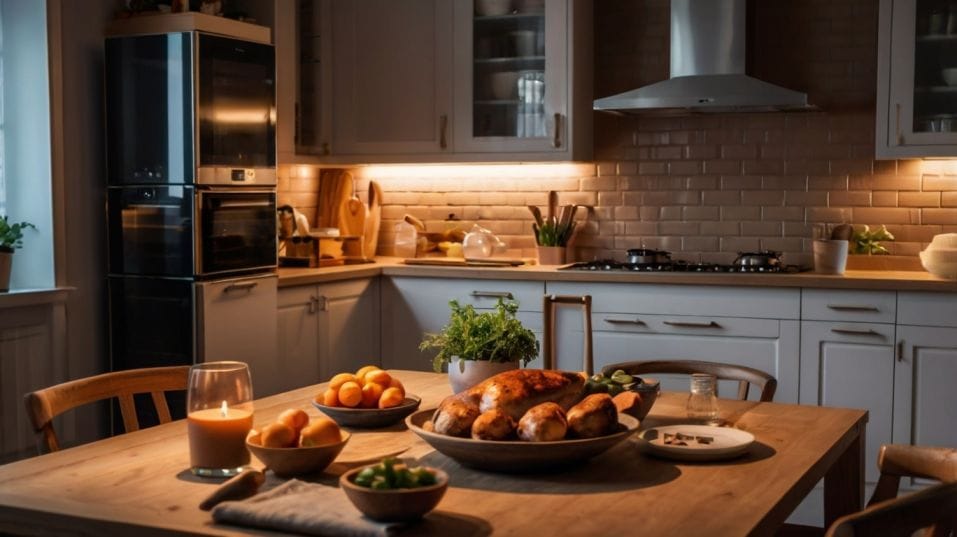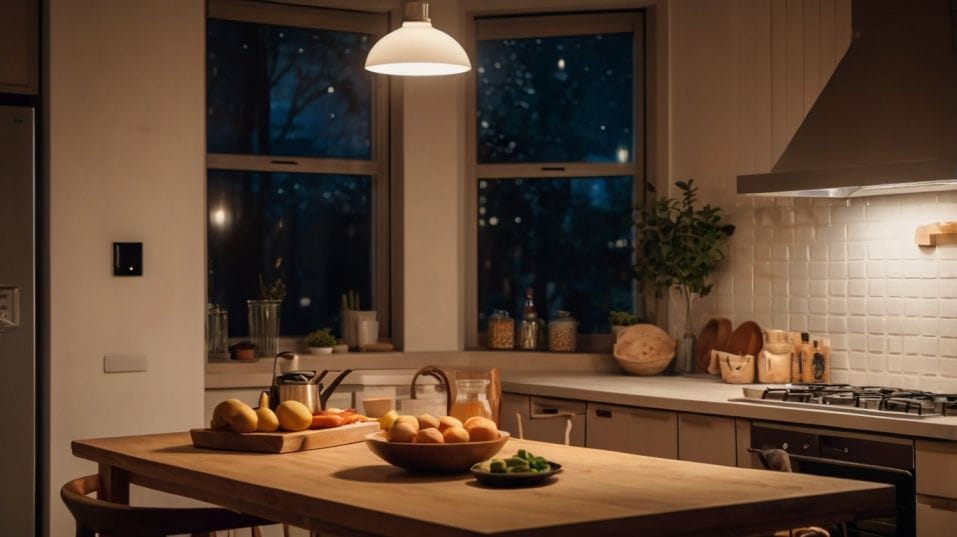When to Eat Your Last Meal for Better Sleep
Improve your sleep by eating at the right time. Learn when to eat your last meal to fall asleep faster and wake up refreshed—every day.

Ever feel wired at bedtime even after a long day? It might not be your screen time—it could be your dinner time. Most people focus on what they eat for better sleep but ignore when they eat.
Your body runs on rhythm, and late meals can throw that off fast. Want deeper rest, sharper mornings, and real recovery? Start with your fork. Let’s break down how meal timing resets your sleep from the inside out.
Your Internal Clock Doesn’t Stop at Sleep
Your body isn’t just sleeping and waking on a schedule—it’s digesting, detoxing, repairing, and recovering on one too.
This built-in rhythm is called your circadian rhythm, and it affects nearly every system in your body, including your metabolism and digestion.
Here’s the kicker: digestion is most efficient during the day. Your gut, pancreas, liver, and insulin response are all on daytime duty. At night, these systems downshift, getting ready for maintenance and repair mode.
When you eat late—say, within an hour or two of bedtime—you’re forcing your body to stay in active, digestive mode when it’s trying to shut down. That means less melatonin, more inflammation, slower digestion, and more restless nights.
Put simply: eating too late confuses your body. It doesn’t know whether to digest or rest—and it can’t do both well at the same time.

So, When Should You Stop Eating?
The science—and the real-world results—are clear. For better sleep, you should finish your last full meal about three hours before you plan to go to sleep. Not five hours. Not one hour. Three is the sweet spot.
This gives your body time to digest the bulk of your food, stabilize blood sugar, and start producing melatonin naturally.
You'll head to bed without the “full and foggy” feeling that comes from a late dinner—and you’ll fall asleep faster, stay asleep longer, and wake up feeling lighter and clearer.
Let’s put it into context:
- Bedtime at 10:30 p.m.? Eat dinner by 7:30.
- Hitting the pillow by 11:00 p.m.? Wrap up your last bite by 8:00.
It’s not about perfection—it’s about creating a rhythm your body can trust. Stick to that timing most days, and your sleep will get deeper, more restorative, and easier to maintain.
But What If You’re Genuinely Hungry?
Real hunger right before bed usually means one of two things: your last meal wasn’t balanced, or your dinner timing was way too early. Either way, there’s a fix.
If your stomach is growling and it’s interfering with your ability to relax, a small, smart snack can actually support sleep—as long as it doesn’t force your body back into full digestion mode.
Good choices?
A few slices of turkey, a spoonful of almond butter, cottage cheese, or a handful of pistachios. These are high in protein and contain tryptophan or magnesium, which support melatonin production and relaxation.
Avoid heavy, spicy, sugary, or processed foods. No ice cream. No pizza. No “just one more bowl” of cereal. These keep your digestive system active and blood sugar unstable, making your brain restless and your sleep fragmented.
Pro tip: if you’re hungry night after night, tweak your dinner. Add more protein, fiber, or slow-digesting carbs. A balanced, satisfying meal at dinnertime makes late-night cravings disappear.
Consistency Is Your Sleep Secret Weapon
Your body thrives on consistency. The more predictable your eating and sleeping schedules are, the more your internal systems sync up and start working for you, not against you.
If you regularly eat dinner at 6:45 and go to bed at 10, your body begins to expect it. It digests more efficiently, produces melatonin on cue, and starts powering down naturally.
Shift dinner randomly from 6 to 9 to 7:30 every night, and your body gets confused. Digestion slows. Sleep suffers. Energy tanks the next day.
Set a rough window for dinner and stick to it
Even on weekends. Make that rhythm part of your evening routine. Over time, you’ll notice it’s easier to fall asleep without effort.
Your wind-down will feel smoother. Your mornings will feel sharper. This is how you build high-quality sleep into your life without even thinking about it.
What to Eat at Night (and What to Avoid)
The goal isn’t to eat less—it’s to eat smarter. Your last meal should fuel your body without overwhelming it. That means:
- Go for balanced plates. Prioritize protein, healthy fats, and fiber-rich carbs. This keeps blood sugar steady and you full till morning.
- Avoid heavy, greasy, or high-sugar meals. These are harder to digest and more likely to disrupt sleep cycles.
- Limit alcohol. Even a glass or two can tank sleep quality, fragment REM, and leave you wide awake at 3 a.m.
- Skip caffeine after 2 p.m. Obvious, yes. But critical. Even if you think you sleep fine after late coffee, your sleep quality is suffering under the hood.
Here’s a dinner that sets you up for better sleep:
- Grilled salmon with roasted sweet potato and sautéed greens
- A lentil and quinoa bowl with olive oil and tahini dressing
- Chicken and brown rice stir-fry with broccoli and sesame seeds
Doesn’t have to be complicated. Just consistent, balanced, and timed right.
Final Thoughts
If you’re looking for better sleep, don’t just focus on your pillow—look at your plate.
Finishing your last meal about three hours before bedtime gives your body the space it needs to wind down, produce melatonin, and slip into deep, restorative rest. No crash diets. No strict routines. Just smart timing and better awareness.
Start simple. Tonight, move dinner a bit earlier. Choose foods that help your body settle, not struggle. Keep it steady. Give it a week. Better sleep starts with the clock. Own it—and wake up like you mean it.




